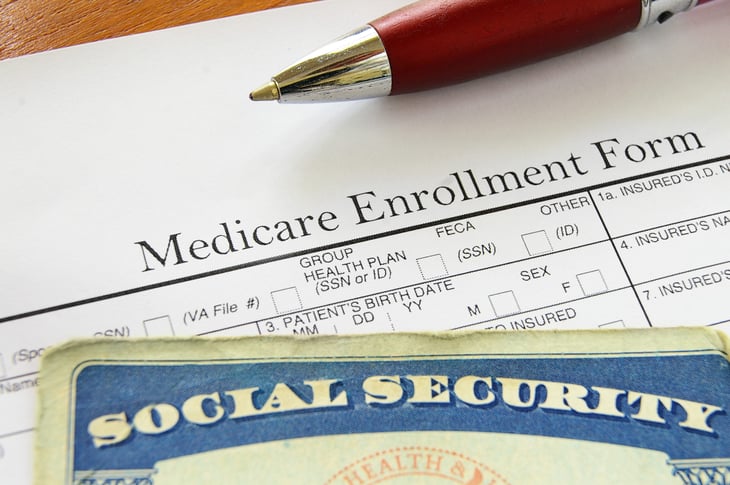
Welcome to Ask Money Talks News, a series answering financial questions submitted by Money Talks News readers and podcast listeners.
In this edition, we’re talking about health savings accounts. HSAs can be a great resource for folks in retirement. But they have limitations that retirees should be aware of.
We’ll also explain how you can submit a question to us if you have one of your own.
If you enjoy this series, sign up for the Money Talks Newsletter so you don’t miss the next edition.
What makes an HSA so valuable?

Richard P. asks Money Talks News:
“Can retired persons qualify for a health savings account?”
You ask a great question, Richard: Health savings accounts are among the most valuable but most overlooked tools for financing a sound retirement.
However, before answering your specific query — whether you can open and contribute to an HSA during retirement — let’s look at the potential value of putting money into an HSA at any age.
If you qualify to contribute to an HSA (which requires having a high-deductible health insurance plan), contributing to this type of accounts offers almost unparalleled tax advantages. HSAs are triple tax-advantaged:
- You get a tax break when you make the contribution.
- The money grows tax-free for all the years it remains in the account.
- As long as you use the money to pay for qualified medical expenses, you do not pay taxes when you withdraw from the account.
That means if you play your cards right, you never pay tax on money you put in an HSA. It is difficult to imagine another tax break as good as that.
For the 2024 tax year — the one for which you return is due by April 2025 — you can contribute a maximum of $4,150 to an HSA if you have individual health insurance coverage, or $8,300 if you have family coverage. Those who are 55 and older can contribute an additional $1,000 per year.
Using an HSA as a retirement account

The enormous tax advantages of health savings accounts are why folks who are shrewd — and who have enough income and savings to pull this off — pour money into an HSA year after year during their working lives.
Some of these savers even take things to the next level: Instead of using HSA funds to pay for current medical expenses, they leave the money untouched with the goal of turning the HSA into a de facto retirement account.
So, when these folks incur health care bills during their working years, they pay for them out of pocket. That might sound crazy — after all, an HSA was designed to help you pay for medical care tax-free.
But this strategy can really pay off over the long haul. Some HSA providers, such as Lively, let you invest the money in your account in the stock market. Putting some or all of your HSA money into stock mutual funds or exchange-traded funds (ETFs) or into individual stocks offers the potential for your savings to grow exponentially over time.
If you contribute the maximum amount to an HSA year after year for many years leading up to retirement and invest the money well, it’s not unreasonable to assume you could accumulate $100,000 — or possibly considerably more — in the account by the time you retire.
You can then use that money to pay for medical expenses tax-free throughout your retirement.
And here’s a little-known fact: Once you reach the age of 65, you can use your HSA to pay for any expense penalty-free. Of course, you will have to pay taxes on a withdrawal if you do not spend the money on qualified medical expenses. But you will not owe any penalties after you turn 65.
This means that if you choose to do so, you can turn your HSA into what is essentially another traditional IRA. Thanks, Uncle Sam!
Can you qualify for an HSA in retirement?

Now, to answer Richard’s question: “Can retired persons qualify for a health savings account?”
In general, the answer for most retirees who are 65 or older is “no.” That is because 65 is the age when the vast majority of people finally sign up for Medicare.
As the law stands today, Medicare beneficiaries are prohibited from contributing to an HSA. They can make withdrawals from an existing HSA, but they cannot contribute additional money to the account.
Of course, many people retire before the age of 65. These early retirees do indeed qualify for an HSA as long as they meet the rules set up by the federal government. According to the IRS, these include:
- You are covered under a high-deductible health plan.
- You have no other health coverage, with a few exceptions.
- You aren’t enrolled in Medicare.
- You can’t be claimed as a dependent on someone else’s tax return.
For more precise details, check out IRS Publication 969: Health Savings Accounts and Other Tax-Favored Health Plans.
So, if you retire prior to age 65, you might be able to stuff money into an HSA for a few years.
However, the bottom line is that once you become eligible for Medicare, you no longer qualify to contribute to an HSA. There has been some talk in Congress of changing this rule. But for now, it remains the law of the land.
How to Ask Money Talks News

You can submit a question for the Ask Money Talks News series for free. Here’s how:
- Hit “reply” to the Money Talks Newsletter.
- Change the email subject line to Ask Money Talks News.
- Put your question in the email. Make sure to include enough detail for us to fully understand your question and any relevant context — but keep it all under 50 words.
- Hit “send.”
We can’t answer every question we receive, of course, but we do prioritize questions from Money Talks News members and questions that apply to a majority of our audience.




Add a Comment
Our Policy: We welcome relevant and respectful comments in order to foster healthy and informative discussions. All other comments may be removed. Comments with links are automatically held for moderation.